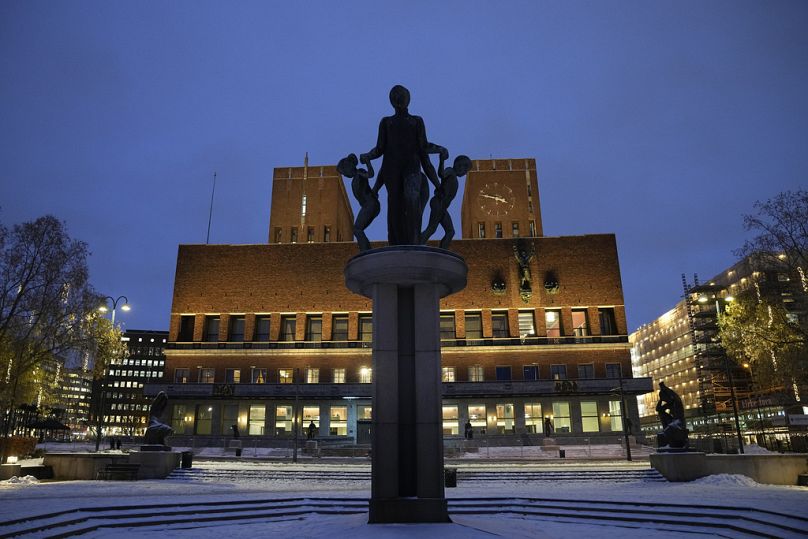Scientists Moungi Bawendi and Louis Brus are American and Alexei Ekimov is Russian. The prize is awarded by the Royal Swedish Academy of Sciences and is worth 11m Swedish kronor (€947,700).
The 2023 Nobel Prize in Chemistry has been awarded to scientists Moungi Bawendi, Louis Brus and Alexi Ekimov for their work on tiny quantum dots.
The prize rewards the discovery and development of quantum dots which are nanoparticles so small that their size determines their properties.
The smallest components of nanotechnology spread light from televisions and LED lamps, and can also be used to guide surgeons when removing tumour tissue.
The Nobel Committee for Chemistry said the researchers believe that in the future the quantum dots could contribute to flexible electronics, tiny sensors, thinner solar cells and encrypted quantum communication.
Quantum dots’ electrons have constrained movement, and this affects how they absorb and release visible light, allowing for very bright colours.
The nanoparticles glow blue, red, or green when illuminated or exposed to light.
The colour depends on the size of the particles; larger dots shine red, and smaller ones shine blue.
The colour change is due to how electrons act differently in more or less confined spaces.
While physicists had predicted these colour-change properties as early as the 1930s, creating quantum dots of specific controlled sizes in the lab was not possible for another 50 years.
Ekimov, 78, and Brus, 80, are early pioneers of the technology, while Bawendi, 62, is credited with revolutionising the production of quantum dots “resulting in almost perfect particles. This high quality was necessary for them to be utilised in applications,” the academy said.
Bawendi told a news conference that he was “very surprised, sleepy, shocked, unexpected and very honoured.”
“The community realised the implications in the mid-90s that there could potentially be some real-world applications,” Bawendi said.
The academy, which awards the physics, chemistry and economics prizes, asks for nominations a year in advance from thousands of university professors and other scholars around the world.
A committee for each prize then discusses candidates in a series of meetings throughout the year.
At the end of the process, the committee presents one or more proposals to the full academy for a vote.
The deliberations, including the names of nominees other than the winners, are kept confidential for 50 years.












